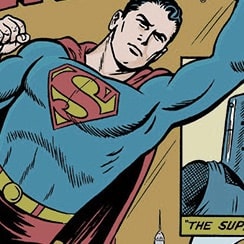Try GOLD - Free
The Atlantic Magazine - February 2026

Go Unlimited with Magzter GOLD
Read The Atlantic along with 10,000+ other magazines & newspapers with just one subscription
View CatalogSubscribe only to The Atlantic
Cancel Anytime.
(No Commitments) ⓘIf you are not happy with the subscription, you can email us at help@magzter.com within 7 days of subscription start date for a full refund. No questions asked - Promise! (Note: Not applicable for single issue purchases)
Digital Subscription
Instant Access ⓘSubscribe now to instantly start reading on the Magzter website, iOS, Android, and Amazon apps.
Verified Secure
payment ⓘMagzter is a verified Stripe merchant.
In this issue
The Purged
Donald Trump’s destruction of the civil service is a tragedy not just for the roughly 300,000 workers who have been discarded, but for an entire nation.
By Franklin Foer
Is This What Patriotism Looks Like?
Why an ex–police officer assaulted a fellow cop on January 6
By Jamie Thompson
I’m Not From the Government but
I’m Here to Help The Trump administration is trying to eliminate federal services? Fine. I’ll do everything myself.
By Alexandra Petri
By Ross Andersen
The space program ennobled American culture and advanced American science. Donald Trump has chosen to end that era of ambition
How Bad Bunny Did It
The Super Bowl headliner doesn’t care if you understand his lyrics.
By Spencer Kornhaber
The Atlantic Magazine Description:
The Atlantic is a prestigious magazine that has been at the forefront of American intellectual and cultural discourse for over 160 years. Founded in 1857, it has a long and distinguished history of publishing thought-provoking and influential articles.
With a focus on politics, society, culture, and the arts, The Atlantic covers a wide range of topics through in-depth features, essays, and investigative journalism. It delves into pressing issues shaping our world, providing insightful analysis and diverse perspectives on current events, social trends, and political developments.
The magazine has a reputation for publishing impactful long-form journalism that tackles complex subjects with nuance and depth. It explores key issues such as social justice, climate change, technology, international relations, and the intersection of politics and culture. The Atlantic also features profiles of prominent individuals and thought leaders, offering readers a glimpse into their lives and ideas.
In addition to its thought-provoking content, The Atlantic showcases literary fiction and poetry, celebrating the art of storytelling and the power of language. It consistently strives to foster intellectual curiosity and engage readers with rigorous reporting, engaging narratives, and well-crafted prose.
Through its rich history and commitment to high-quality journalism, The Atlantic has earned a reputation as a magazine that challenges conventions sparks conversations, and shapes the national discourse. It remains an essential source of information and ideas for those seeking a deeper understanding of the world we live in.
Subscribe to The Atlantic and join a community of engaged readers who value thoughtful analysis, compelling storytelling, and the pursuit of knowledge. Experience the impact of one of America's most influential magazines as it continues to shape the conversation on the issues that matter most.
Recent issues

January 2026

December 2025

November 2025

October 2025

September 2025

August 2025

July 2025

June 2025

May 2025

April 2025

March 2025

February 2025

January 2025

December 2024

November 2024

October 2024

September 2024

July - August 2024

June 2024

May 2024

April 2024

March 2024

January - February 2024

December 2023

November 2023

October 2023

September 2023

July - August 2023

June 2023
Related Titles

Time

Newsweek US

The New Yorker

Reason magazine

Fortune US

Mother Jones

Techlife News

Tailgater Magazine

The Washington Post

New York Amsterdam News

Los Angeles

Orange Coast

Pasadena

Sports Life US

Los Angeles Times

Scientific American

MIT Technology Review

Harper's Magazine

TIME The Science of Addiction 2025

Luxury Lifestyle Awards Winner's Guide

TIME The Simpsons 2025

Fountain of Youth

TIME Best of Person of the Year 2025

Time Americas at 250

CEO Outlook Global

The London Standard

Newsweek Europe

Daily Mirror UK

The Independent

The Sunday Mirror


































